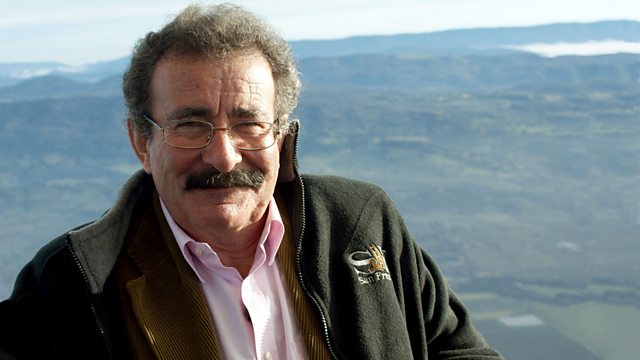Month: February 2017
Egmont, Op. 84, by Ludwig van Beethoven
Egmont, Op. 84, by Ludwig van Beethoven, is a set of incidental music pieces for the 1787 play of the same name by Johann Wolfgang von Goethe.[1] It consists of an overture followed by a sequence of nine pieces for soprano, male narrator and full symphony orchestra. (The male narrator is optional; he is not used in the play and does not appear in all recordings of the complete incidental music.) Beethoven wrote it between October 1809 and June 1810, and it was premiered on 15 June 1810.
The subject of the music and dramatic narrative is the life and heroism of a 16th-century Dutch nobleman, the Count of Egmont. It was composed during the period of the Napoleonic Wars, at a time when the French Empire had extended its domination over most of Europe. Beethoven had famously expressed his great outrage over Napoleon Bonaparte’s decision to crown himself Emperor in 1804, furiously scratching out his name in the dedication of the Eroica Symphony. In the music for Egmont, Beethoven expressed his own political concerns through the exaltation of the heroic sacrifice of a man condemned to death for having taken a valiant stand against oppression. The Overture later became an unofficial anthem of the 1956 Hungarian revolution.
Beethoven composed Klärchen’s songs, “Die Trommel gerühret” (“The drum is a-stirring”) and “Freudvoll und leidvoll” (“Joyful and woeful”), with the Austrian actress Antonie Adamberger specifically in mind. She would later repeatedly and enthusiastically recall her collaboration with him.[2]
The music was greeted with eulogistic praise, in particular by E.T.A. Hoffmann for its poetry, and Goethe himself declared that Beethoven had expressed his intentions with “a remarkable genius.”
The overture, powerful and expressive, is one of the last works of his middle period; it has become as famous a composition as the Coriolan Overture, and is in a similar style to the Fifth Symphony, which he had completed two years earlier.
God Only Knows
In the Footsteps of Alexander the Great (TV Mini-Series 1998– )
entary series retracing the journey of Alexander the Great across sixteen countries.
Source: In the Footsteps of Alexander the Great (TV Mini-Series 1998– ) – IMDb
BBC One – How Science Changed Our World
Wonders of the Solar System (TV Mini-Series 2010– )
With Brian Cox, Don Giuliano, Alan Hildebrand, Richard Hoover. In this spellbinding series Professor Brian Cox visits the most extreme locations on Earth to explain how the laws of physics carved natural wonders across the solar system.
Source: Wonders of the Solar System (TV Mini-Series 2010– ) – IMDb
Wonders of the Universe (TV Mini-Series 2011– )
With Brian Cox, Steven Mackintosh. Professor Brian Cox visits some of the most dramatic parts of the globe to explain the fundamental principles that govern the laws of nature – light, gravity, energy, matter and time. With the world’s most profound science at its heart, Wonders Of The Universe reveals how the story of humanity is intimately entwined with that of the complex story of the origins of the universe.
Source: Wonders of the Universe (TV Mini-Series 2011– ) – IMDb
Home (2009)
With aerial footage from fifty-four countries, ‘Home’ is a depiction of how Earth’s problems are all interlinked.Director: Yann Arthus-BertrandWriters: Isabelle Delannoy, Yann Arthus-Bertrand | 5 more credits »Stars: Yann Arthus-Bertrand, Glenn Close, Jacques Gamblin
Source: Home (2009) – IMDb
Hubble (2010)
Directed by Toni Myers. With Leonardo DiCaprio, Scott D. Altman, Andrew J. Feustel, Michael T. Good. An IMAX 3D camera chronicles the effort of 7 astronauts aboard the Space Shuttle Atlantis to repair the Hubble Space Telescope.
Source: Hubble (2010) – IMDb
Inside Job (2010)
Directed by Charles Ferguson. With Matt Damon, Gylfi Zoega, Andri Snær Magnason, Sigridur Benediktsdottir. Takes a closer look at what brought about the 2008 financial meltdown.
Source: Inside Job (2010) – IMDb
Stephen Hawking’s Universe (TV Mini-Series 2010– )
With Benedict Cumberbatch, Stephen Hawking, Melissa Ricci, Christopher Goh. In this comprehensive cosmology series Stephen Hawking looks at the entire universe, from the Big Bang to the end of time.
Source: Stephen Hawking’s Universe (TV Mini-Series 2010– ) – IMDb
BBC Two – The Impressionists: Painting and Revolution, Gang of Four
Waldemar Januszczak delves into the back stories of Pissarro, Monet, Renoir and Bazille.
Source: BBC Two – The Impressionists: Painting and Revolution, Gang of Four
